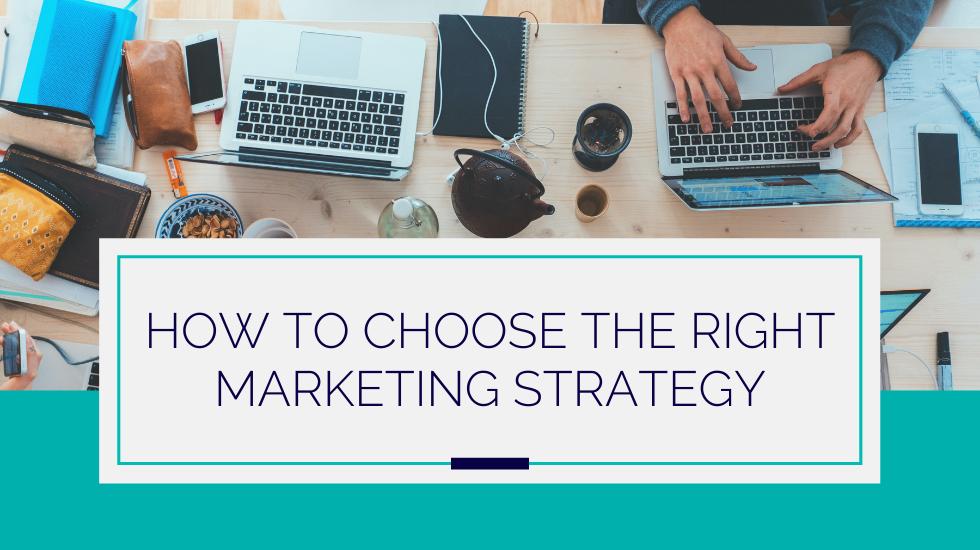So you’re ready to commit to a marketing strategy. Congratulations!
If you’re asking yourself how to choose your marketing strategy, you’ve likely already done a lot of work. You’re in business providing a valuable service to your clients. You have a brand (even if you didn’t know that yet), and you’re beginning to consider the fact that your marketing plan should be tailored to your goals.
You’ve also hit on a seldom-acknowledged truth: that deciding how to spend your marketing budget can be one of the most challenging parts of the process.
Don’t get us wrong—creating your content and implementing a campaign is also plenty challenging. Depending on your strategy, the execution phase can require experience in copywriting, graphic design, web development, SEO, social media, video editing, and so on. That’s a lot of subspecialties!
But there’s no way around it: you can’t dive into the nitty-gritty of content creation until you know what you’re doing, why, and what you hope to see as a result. Here’s how to get started.
Know Your Goals—And Avoid Shiny Object Syndrome
Should we be on TikTok? Should I start a podcast? Do I need a jingle?
We get these questions all the time, and the answer is… maybe! It all depends on what you’re trying to achieve.
Before you build out a marketing strategy, you need to do some deep thinking about your business objectives. In other words, where do you want to be in ten years, and what do you need to do to get there?
Do you need to:
- Increase your number of clients?
- Raise your rates without losing customers?
- Increase profitability with a certain market sector?
- Increase use of a certain area of your practice?
Once you know what you need to reach your goals, you develop your marketing strategy with those outcomes in mind.
This leads us back to the TikTok question. Should you be on TikTok? The answer is (still) maybe—but we can qualify it a little: you should be on TikTok if that’s where your ideal clients are and if the medium will allow you to effectively communicate your message.
It’s easy to get distracted by the next big thing in marketing. We call it shiny object syndrome, and it’s nothing to be ashamed of. After all, we all know how important it is to change with the times—and being curious about new ways of reaching your customers is a good instinct to have.
It’s important to counterbalance that instinct, however, with this one: the right approach for me is the one that allows me to communicate with my ideal clients effectively.
Choosing Content Types and Platform
So what type of content should you be putting out, and on which platforms?
Let’s say you’re a financial planning firm, and you’d like to serve more recent college graduates. You build out your customer personas so that you can identify the needs, wants, and habits of your target demographic.
You might find, in this research, that TikTok has a high concentration of users between 18 and 24, that members of GenZ are highly aware of the effect college debt has on their generation, and that there aren’t any financial planners speaking to this issue on TikTok right now.
Add this information to the fact that you genuinely enjoy helping people solve financial problems, and the answer is that TikTok might be an excellent platform for you—slick dance moves not required.
If, on the other hand, your business development strategy session taught you that you should be attempting to attract a small number of higher-paying clients (such as business owners or corporations), TikTok is probably all wrong for you. Instead, you should be focusing on paid ads, content marketing, and expanding your referral network through guest posts, networking, and public speaking.
Getting Started
There’s no shortage of platforms out there—and we know enough about technological and social trends to assume that there will only be more with each passing year.
Our advice to you? Stay grounded in your purpose and in the value of the services you offer.
Marketing is fundamentally about building relationships—which means you probably know more about it than you think you do.
And if you need a little bit of help getting started, we’re always here.



